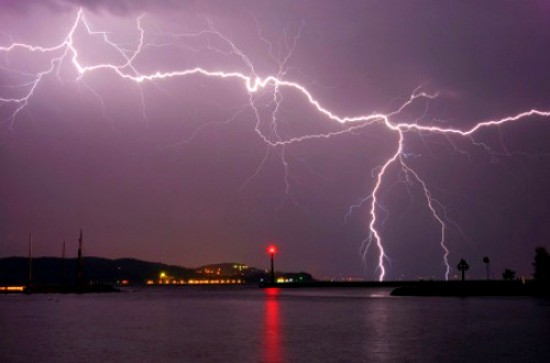Getting hit directly by lightning is an extremely rare occurrence.
But that doesn't mean that you're out of the woods, so to speak, when it comes to danger from lightning.
In fact, even if you're not directly hit, you can still suffer injuries and even death. If lightning strikes near you, it can travel through the ground and up your legs, causing your heart to stop and your breathing to cease. In these cases, if someone is there to perform CPR right away, your are likely to survive. To dispel a myth, if you've been struck by lightning, once you have been struck the energy is gone and you are "safe" to touch.
Other effects can include rupturing of your eardrum, lung injuries from the shock wave and burns.
So, how can you protect yourself?
If you find yourself caught in a lightning storm, you should do is take shelter. A house or other structure is best, but you can also jump in your car or camper. Don't, in any case, take shelter under a tree.
In this segment of ER 101, special guest, Dr. Hans House, MD, joins Dr. Leigh to share important information about the real dangers of lightning, as well as tips to avoid being struck.

Lightning: The Real Danger
Guest
: Dr. Hans House, MD
From the Show: The Dr. Leigh Vinocur Show
Summary: Lightning striking humans is rare, yes. But there can be residual effects, even if you're not directly struck. How can you protect yourself?
Air Date: 9/27/13
Duration: 10
Host: Dr. Leigh Vinocur, MD
Tagged under
KMSPico is a Microsoft Windows 11, 10, 8 and MS Office 2021 activation free program that has a github official page. Now you can download the kms activator from the page at this link kmspico activator.




